Changing lives, one milligram at a time
Imagine being overcome by worry every time your child walks out the door to go to school. Or growing up shrouded in fear that the very thing that sustains you could also threaten your life. That’s the reality for some 58,000 kids and youth in British Columbia and their families.
The culprit: serious food allergies. Even a trace of an allergen like peanut or cow’s milk has the potential to push a child’s immune system into overdrive, triggering itching, hives and, in worstcase scenarios, a potentially fatal reaction called anaphylaxis.
As it often goes, though, sometimes the smallest things can make the mightiest difference. One promising advance is sublingual immunotherapy (SLIT), a food allergy treatment that takes the form of a miniscule amount of food allergen applied in a drop of liquid under a child’s tongue. Over time the dose is incrementally increased—essentially nudging their body to tolerate it.
In the summer of 2020, Canada’s first-ever virtual food allergy immunotherapy research pilot program (FAIT) was launched by BC Children’s Hospital’s Allergy team. This was prompted by the sudden halt of in-person appointments due to COVID-19. Since the existing program was monitored by an allergist onsite for reactions, the shutdown of all clinical operations had a devastating impact on kids and families who had long relied on FAIT.
Determined to find a solution, Dr. Edmond Chan, Head of the Division of Allergy at the University of British Columbia and Clinical Investigator at BC Children’s Hospital Research Institute, connected with global researchers who were studying SLIT—and was impressed by its effectiveness. Even better, it was safe enough for patients and their families to do from the comfort of their own home.
Through SLIT, kids and their families are virtually guided and monitored by trained nurses as they take a small drop of the allergen and hold it under their tongue for a minute before swallowing. This approach has provided a sense of control over a condition that has dictated almost every part of their lives.
For many, consuming even a tiny drop of peanut solution is a giant step toward a changed life. It can open doors that had seemed forever shut—trips overseas, restaurant meals and above all, the chance to simply be a kid again.
That’s exactly what Dr. Lianne Soller, FAIT Program Manager and Allergy Research Manager at BC Children’s, hopes families will gain.
“Travel, going to the grocery store and high school trips can all cause a great sense of worry,” she said. “FAIT is helping to increase a child’s tolerance, giving families peace of mind.”
Since its inception nearly three years ago, the virtual program has become available to families across BC. “We now have 190 SLIT patients who have worked their way up to
maintenance doses,” Dr. Soller said, “and we’re enrolling at least 10 to 15 new patients per month.”
Only the start
The FAIT pilot program is aimed at delivering care during the window of time it matters most—something that’s especially important as food allergy diagnoses increase.
“As children get older, allergy care becomes harder. There are more reactions and there’s less adherence to treatment,” Dr. Chan said.
As Dr. Chan points out, there is a golden age between 4 to 11 months old where you see the greatest safety and effectiveness in treatments—ensuring best possible outcomes for kids.
“We want to continually take a step back and address the full spectrum of a child’s journey: from birth to their teenage years, advancing not only treatment but also primary prevention of food allergy to leave no stone unturned,” Dr. Chan said. “That continuity in care is what transforms the lives of families.”
This article was originally featured in the Spring 2023 issue of Shine magazine.

